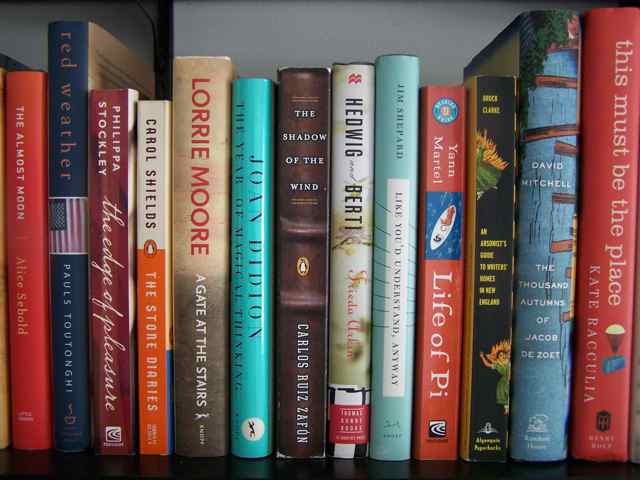 Most of the events in Snow by Orhan Pamuk, winner of the 2006 Nobel Prize in Literature, take place over the space of a few days, but they are described and commented on by an (at first) unknown narrator from a distance of four years in the future. A Turkish poet known only as “Ka” returns to Istanbul, the city of his youth, after twelve years of political exile, and impulsively decides, on the suggestion of a friend, to travel for days through a blizzard out to the impoverished, backwards border city of Kars in a far-off corner of the country, where the unending snow almost immediately makes the roads impassible. Ostensibly Ka has gone there to report on a recent spate of suicides of local Islamic girls, who are being forced to remove their headscarves for school, but Ka is actually more interested in finding a former classmate there, İpek, whom he remembers as being beautiful, and he is ready to fall in love with someone from the time of his youthful happiness.
Most of the events in Snow by Orhan Pamuk, winner of the 2006 Nobel Prize in Literature, take place over the space of a few days, but they are described and commented on by an (at first) unknown narrator from a distance of four years in the future. A Turkish poet known only as “Ka” returns to Istanbul, the city of his youth, after twelve years of political exile, and impulsively decides, on the suggestion of a friend, to travel for days through a blizzard out to the impoverished, backwards border city of Kars in a far-off corner of the country, where the unending snow almost immediately makes the roads impassible. Ostensibly Ka has gone there to report on a recent spate of suicides of local Islamic girls, who are being forced to remove their headscarves for school, but Ka is actually more interested in finding a former classmate there, İpek, whom he remembers as being beautiful, and he is ready to fall in love with someone from the time of his youthful happiness.
The events that happen in this time out of time while Kars is snowed-in are surreal. People are shot, Ka is followed, plots are hatched and carried out. Newspaper reports of events are printed before the events occur; the line between what is real and what is staged gets increasingly blurry. The melancholic Ka, though thoroughly Westernized, is drawn to the fervent radicalism of the Islamic fundamentalists in Kars, gets caught in the clash of religious and secular cultures. Poems come to Ka whole-cloth, as if divinely inspired, during his short stay there, and they seem to him all together to encapsulate the whole of his life, somehow making sense of it.
Ka is described near the beginning of the book this way:
Ka, you see, was one of those moralists who believe that the greatest happiness comes from never doing anything for the sake of personal happiness.
The whole book is blanketed by Ka’s melancholy and guilt for any happiness he feels. Ka is racked with guilt and pessimistic about the future almost all of the time, but he has moments of pure happiness in Kars and experiences an artist’s joy from the perfectly formed poems he is able to write. The reader feels muffled and distanced from Ka, not only by Ka’s trance-like state but also by the narrator of the story, a friend of Ka’s, who painstakingly and conscientiously reconstructs events from Ka’s notes and later conversations, but doesn’t try to place the reader at the immediate scene.
Snow is an intense read, along the lines of a classic Russian novel, with its tortured souls agonizing over how to act and where their political, national, religious, family, and personal loyalties should lie (i.e. how they should live) while at the same time they watch TV, eat dinner, and go about their daily business along with everyone else.
Snow
Pamuk, Orhan
Translated by Maureen Freely
0-375-70686-0, paperback
Vintage Books (Random House)
2005 (original English translation, Knopf, 2004)
Disclosure: I read Snow from a public library copy (two weeks overdue) as part of the 2012 TBR Pile Challenge laid down by Roof Beam Reader.
a
